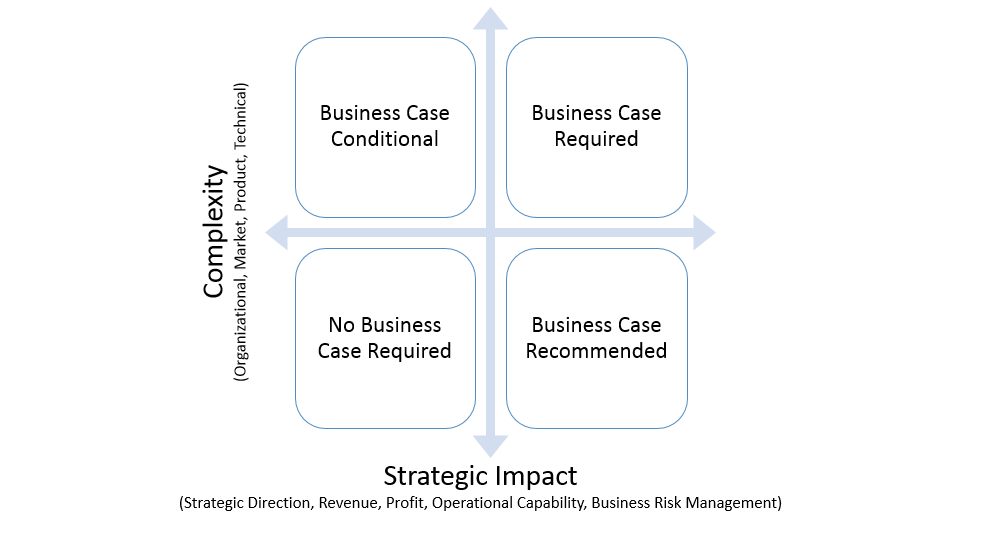Many information technology professionals start working on less formal projects and work their way up to large, complex projects. The first large project any information technology professional works on is an introduction to "Big Information Technology". Processes, governance and standards that were not a necessary part of previous information technology initiatives become mandatory. When information technology leaders face this discrepancy between what they have learned and what they must learn, there can be rejection, acceptance or excitement. On every strategically important and complex project a business case is mandatory, but as information technology professionals we sometimes think of the business case as the business teams responsibility. However, information technology offers business advantages that information technology professionals can more readily articulate, measure, and forecast. Writing a business case for the first time can be a little intimidating. What is in a business case? What is the purpose or the goal of writing a business case? Do I have enough time to write a business case that will effectively demonstrate the value of the project?
Information technology manager's limited experience with, and knowledge of, business case writing often means that they do not require that business cases are written. A poorly articulated set of project benefits, poorly estimated timeline, or inaccurate budget can lead to serious problems on a project. Forecasting the time, money and people required to complete a project may be extremely difficult, but information technology leaders must take ownership for their contribution to the business case. All business units struggle to accurately forecast the costs, benefits and required resources to execute projects. A well thought out business case more effectively convinces an organization of the value, and also the need, to execute a project. An effective business case clearly defines the opportunity cost for the initiative, and convinces the reader that the opportunity cost is acceptable given the benefits. Consequently when things go wrong on a project, the buy in at all levels of the organization will help to ensure that the project moves forward.
The promise to your internal and external customers is in your business case. Successful customer relationships are based on following through on the promises you make to your customers. Completing the due diligence necessary to write an accurate business case secures your promise that you do everything possible to ensure that the project will deliver the project benefits, and that the project will be on time and be on budget. Below is a decision matrix to help determine whether a business case is required for your project.
Business Case Decision Matrix

